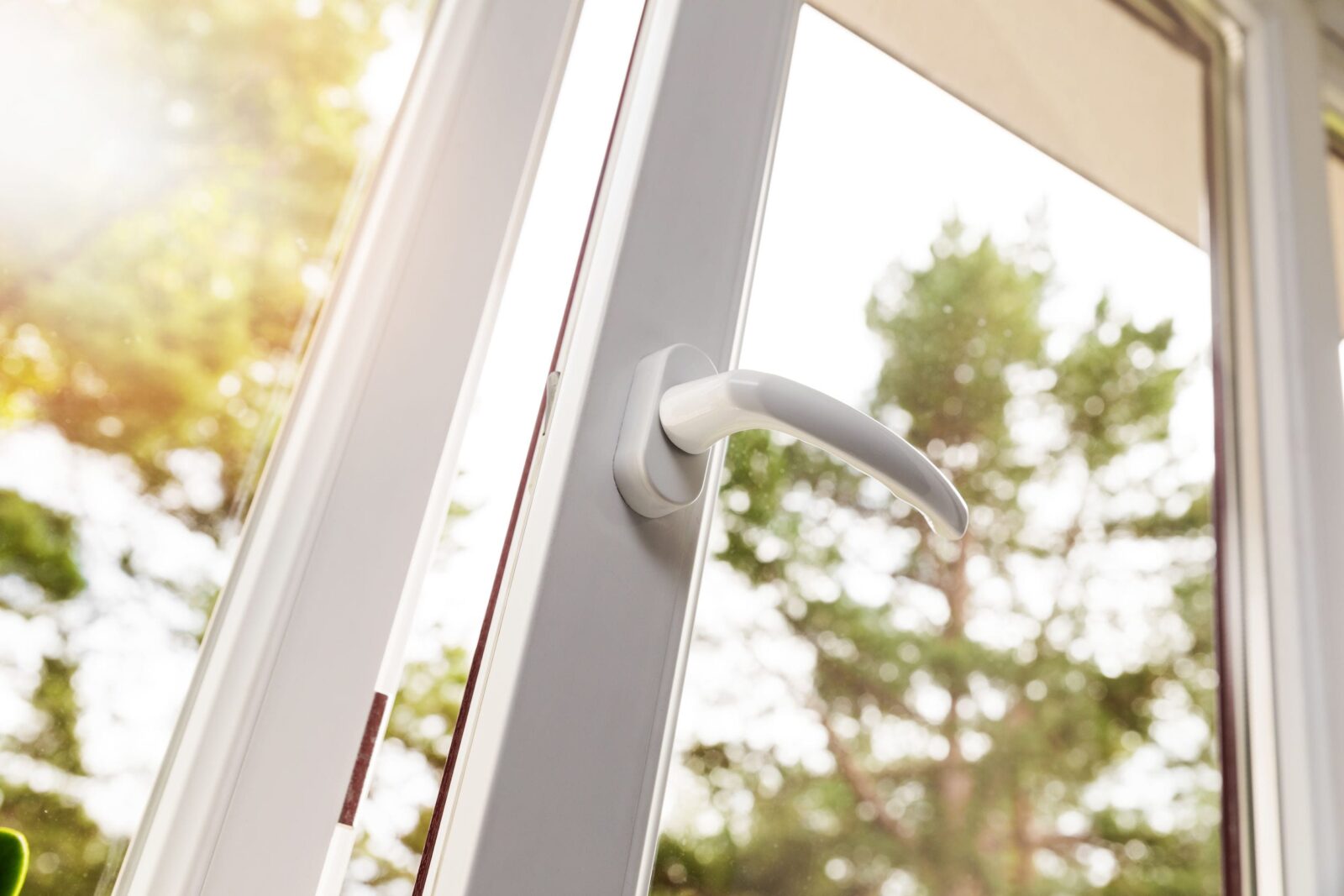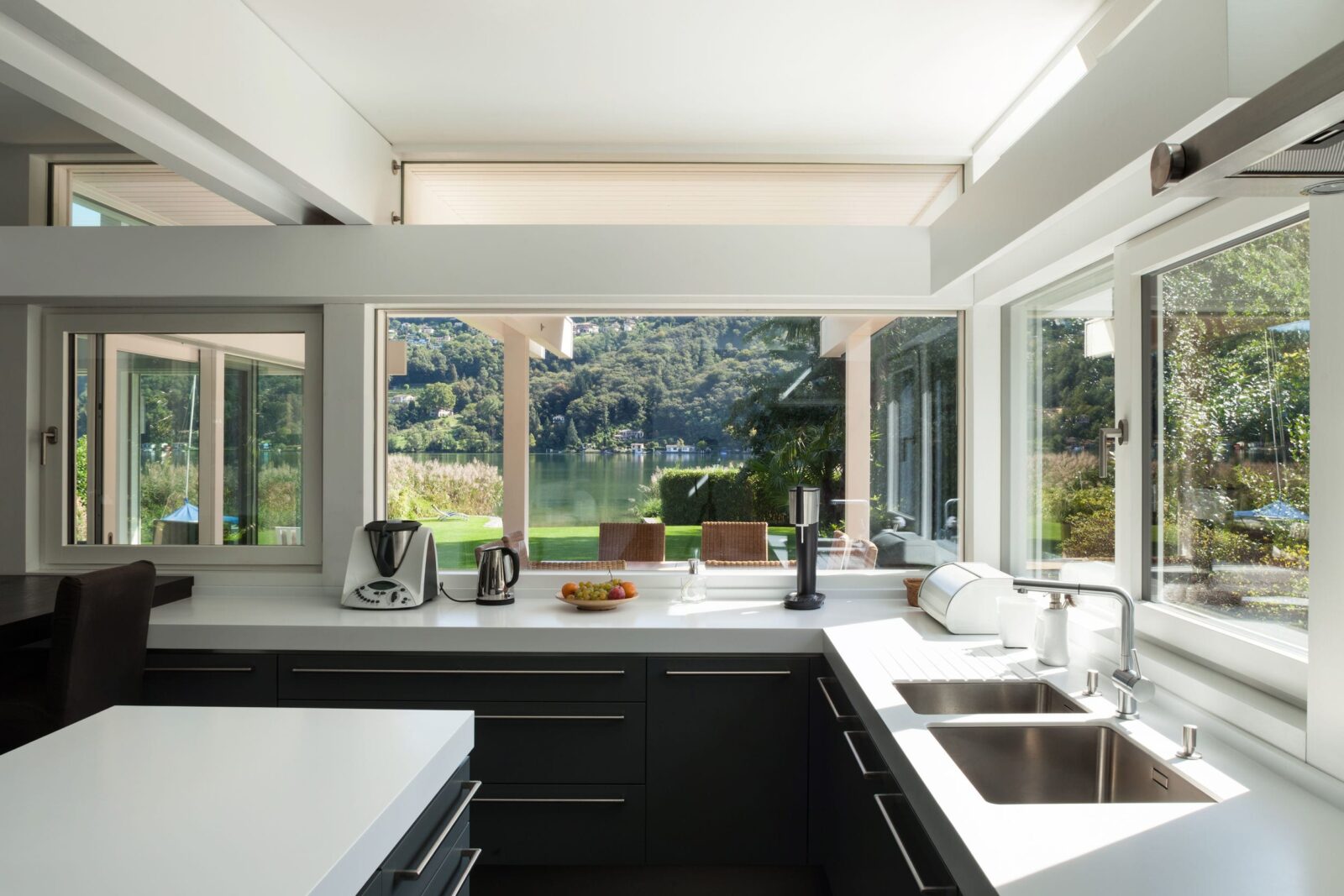Start by considering which windows you want to replace.
Do you want to replace all of them, one floor at a time or just individual units that will save energy and add convenience to a particular room in your home?
Prepare a preliminary budget.
How much you can afford to spend will determine how many windows you can actually replace based on different window materials, designs and features. Pay particular attention to the window’s thermal performance, as that will be an indicator of cost. Windows that qualify for the tax rebate set forth by the American Recovery and Reinvestment Act may be more up front, but would be offset by greater energy savings and the rebate itself.
Consider what you want your new windows to do.
Are they to be an architectural design feature or merely provide functionality? Decide whether you would like the windows to open and close, and how they should operate. Don’t forget that windows also provide security. Vinyl windows provide lower maintenance, greater convenience and higher energy performance than most wood windows.
Factor in the time of year.
In all probability, the project will take at least several days, during which time your home may be somewhat exposed to the elements. Because most vinyl replacement windows are custom made to fit your individual opening, this would limit the time of installation versus standard sized wood windows.
Contact a minimum of 3 replacement window contractors for estimates.
Pay particular attention to what is included in the estimate. Will the contractor be insulating around the perimeter of the window? Will the contractor be including a high performance glazing system to meet your energy needs? Do you want decorative grids placed in between the panes of glass, or prefer a traditional single divided lite look?
Discuss the various window types that the contractor offers and the merits and costs of each:
wood frames, wood that is vinyl-clad or wood that is aluminum-clad. Vinyl- and aluminum- clad windows do not require painting, so they are low-maintenance. However, vinyl clad windows are not always available in a wide range of colors, so don’t assume you can get a particular shade. Vinyl window technology has evolved to a point where color, style and performance are all available, backed up by a strong manufacturer warranty.
Discuss the energy-efficiency options
(such as standard insulated glass and low-e glass) offered by the vendors. Consider low-e coating (a window coating that reduces heat loss through the glass while at the same time allowing heat from the sun to penetrate) or gas-filled windows (argon or krypton inserted between double glazing which reduces heat loss). Work the additional cost of these features in the context of the estimated savings on your heating and cooling bills. Do the expected savings justify the extra cost? Vinyl window frames are less expensive and do provide more insulation qualities. Triple glass with low-e glass and gas filling will provide the ultimate in thermal performance.
Ask the contractor for references and check them:
Were past customers happy with the work done? Was the work completed in a timely manner? Have they had any problems since the installation? Did the contractor leave the site in a clean and undamaged condition? Check with the Better Business Bureau to see if there have been any complaints lodged against them.
Select a contractor based upon price, window type, references and your impressions.
Be sure that the window is backed by a manufacturer with a long standing record of quality and service.
Make sure that the manufacturer/installer offers guarantee(s).
Sign a contract for the work. If ordering the windows separately from a lumberyard, make sure that the installer has signed off on the list to verify that the windows specified are correct.
Make sure that the installer is properly insured.
Get a valid certificate of insurance from the contractor before you pay any money or before the work begins.
A deposit may be required
by the contractor, but be sure that the job is completed satisfactorily before final payment.







